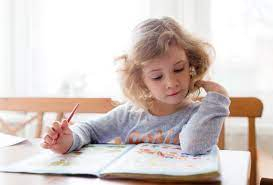
"What do you want to be when you grow up?" Every child gets asked this question way too many times. Uncles and aunts wait for the typical doctor, firefighter, or teacher response.
"I want to be happy" is not the expected comeback, but it's a great answer as well. Truth is, if someone is happy, they can excel in whichever field they choose. In contrast, if they dread going to work, a fancy title or a big, fat paycheck will not make them content.
Parents can make the home environment happier for their families. In turn, they can raise more well-rounded adults. Denmark is known as the country with the happiest people in the world. The Organization for Economic Cooperation has awarded them this No. 1 spot for nearly 40 years. So what is their secret recipe for raising happy and self-sufficient children? Read on to find out.
Foster Independence Early On
Parents, or other responsible adults, need to be available if children need them. However, they don't have to constantly entertain the kids. Even babies can play on their own for a while. When independence is instilled early, parents won't scramble to fill free time with play dates and extracurriculars.
The Danes believe that kids need to play on their own preferably outdoors year round. Their babies even nap outside in the winter. While that may be hard for American parents to digest, some form of it is doable. Encourage your older children to enjoy unstructured play in the backyard or neighborhood park. Let them play tag, dig up worms, skip rocks, and do whatever else they come up with.
You may well be worried when your kids are out of sight. If so, get a smartwatch that can serve as a GPS tracker for kids. It can make your children a little more independent while giving you peace of mind.
Teach Empathy
Danish schools focus a lot on teaching empathy. They consider it as important as learning math or reading. One good way parents can teach their children this crucial skill is by discussing the books they read together. Children are more likely to open up about issues when they talk about fictional characters. Parents can take these cues and help steer them toward solutions.
Fairy tale author Hans Christian Andersen was Danish, and many of his stories do not have happy endings. His tales have been adapted by Americans to make sure everyone lives happily ever after. However, this practice can set up your children for disappointment, as bad things do happen in life.
Rather than attempting to sand off all of life's rough edges, parents can teach empathy by being good listeners. They can help kids with conflict resolution by listening to all sides of the story. They can teach perspective by asking the kids how they would feel if they were in a friend's or sibling's shoes. Sometimes all it takes for kids to work through anger, fear, or sadness is a sympathetic ear and a warm hug.
Embrace Hygge
Pronounced hoo-ga, hygge is a way of life for the Danes. It is centered around minimalism, comfort, family, and contentment. Hygge is not a new fad; it is in their DNA. It is not anything materialistic that you can order with a few clicks. Hygge is something you create for yourself or with loved ones.
Parents can be great role models for children in embracing hygge. When parents connect with children, embrace them, and listen to them, they will not have to issue ultimatums. There will be fewer threats needed for kids to finish their veggies or catch the school bus on time. The connection is what makes kids want to be in sync with their parents.
Hygge is about snuggling in chunky blankets, making home-cooked food, and being present in the moment. It is the antithesis of family members looking down at their screens in their own rooms ordering more stuff.
Let Kids Get Bored
As soon as U.S. parents hear about days off from school, they start planning play dates and other activities. Some families may need these scheduled commitments because of childcare issues, but not all do. Most American children have led overscheduled lives from the start. Therefore, they don't know how to function without being rushed to swimming, gymnastics, or tutoring.
News flash: It is OK for kids to be bored. Do not cave in and let them become glued to screens. They will survive without them and may even become more creative as a result. It is when kids have not been told what to do that they start using their imagination and creativity peaks. Siblings can build a fort in the family room or set up a pretend grocery store. Even on their own, kids could write a spooky short story or compose a funky melody.
Extracurricular activities can be great, but try to limit them to one per child every season. This way, you also get a chance to breathe after work. Have one day of the week with absolutely nothing on the family calendar; then make it two. It may sound weird at first, but soon everyone will start looking forward to the unstructured time. Plus, you're less likely to pick up a greasy drive-through dinner if you haven't been chauffeuring kids all evening.
Hygge doesn't mean you never get out or buy yourself new things you just do it with purpose and intention. The Danes wish parents globally would rethink the hectic kind of lifestyle they have adopted. Not every minute of the day needs to be "productive." They want the next generation to be as happy as they are today.









